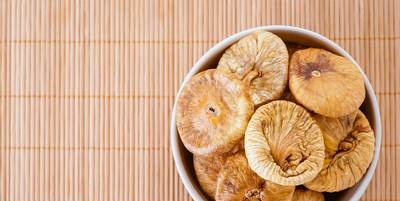|
 The beneficial properties of dried fruits have been known since ancient times. Before the modern methods of canning vegetables, fruits and berries, people mastered the most ancient method - drying. With this method, the liquid gradually evaporates from the fruit, but all the useful, nutrients and trace elements remain. Fruit drying has one clear advantage over other preservation methods, since in this case emulsifiers, stabilizers, salt, sugar and dyes, preservatives and other harmful substances are not used. After drying, a person receives a completely natural product filled with vitamins and microelements.
You can even say that dried fruit is a concentrate that contains such valuable substances as magnesium, calcium, iron, etc. The beneficial properties of dried fruits have been known since ancient times. Before the modern methods of canning vegetables, fruits and berries, people mastered the most ancient method - drying. With this method, the liquid gradually evaporates from the fruit, but all the useful, nutrients and trace elements remain. Fruit drying has one clear advantage over other preservation methods, since in this case emulsifiers, stabilizers, salt, sugar and dyes, preservatives and other harmful substances are not used. After drying, a person receives a completely natural product filled with vitamins and microelements.
You can even say that dried fruit is a concentrate that contains such valuable substances as magnesium, calcium, iron, etc.
Useful properties of dried fruits
During the drying process, naturally, some of the vitamins and minerals are lost. However, many vital substances are preserved in full in dried fruits. All these vitamins, pectin substances, fiber and mineral salts contained in dried fruits are able to satisfy all the body's needs.
A small handful of dried apricots, for example, can fully satisfy the body's daily need for potassium and iron. The same amount of dried cherries will provide the body with cobalt, vitamin B5 and magnesium. Dates, dried apricots, prunes and figs will help to significantly improve the work of the digestive system of an adult. All of the above dried fruits contain not only trace elements and vitamins, but also useful plant fiber that eliminates constipation and improves the digestive tract.
Thanks to the large amount of calcium, which is contained in almost all dried fruits, the condition of hair, nails and skin improves.
Dried apricots, figs, dates and other dried fruits contain simple carbohydrates that make you feel full and have a positive effect on the brain.
 Fruits can fully replace sweets, however, they need to be consumed in moderation, since they also contain a large amount of vegetable sugars. Fruits can fully replace sweets, however, they need to be consumed in moderation, since they also contain a large amount of vegetable sugars.
All dried fruits have many other beneficial properties. So, for example, they do not lose their useful properties, even if they are stored for a very long time at room temperature. In addition, dried fruits take up very little space and can be taken with you on a trip or stored at home in a small container.
Raisins
This dried fruit is the most popular. It is used not only as an independent delicacy, but also added to some dishes, for example, in pilaf.
Raisins contain a large amount of well-absorbed glucose, as well as manganese, potassium and magnesium, which have a positive effect on the work of the heart. Raisins also contain boron, which improves absorption calcium... Boron is very important for the body, because when it is lacking, it begins to develop osteoporosis... In folk medicine, raisins are used in the treatment of nervous disorders, anemia, and tuberculosis. It is recommended to use this dried fruit with increased brain work.
Has raisins and their contraindications. So, it is highly discouraged to use it for obese people, as well as for patients suffering from diabetes mellitus.
The most useful raisins are considered to be dark in color, since light raisins are treated in a special way before drying. Processing is carried out in order to preserve the light color of the raisins.
Dried apricots
Dried apricots are obtained from apricots... These dried fruits also have other names, for example, "kaisa", "apricots" or "dried apricots".
Dried apricots contain a large amount of magnesium, calcium, potassium, iron, phosphorus and B vitamins.Magnesium perfectly strengthens muscle tissue, so dried apricots are recommended for people involved in sports or professional athletes. Dried apricots have a bright color, and provitamin A (carotene) gives it a bright color. The content of a large amount of provitamin A in dried apricots allows using this dried fruit to strengthen the tissues of the mucous membranes. In addition, regular consumption of apricots reduces the risk of developing cancer.
Prunes
This product is obtained by drying plums, which are ovoid and have a dark purple color.
It is recommended to use prunes to improve carbohydrate metabolism, in case of kidney and heart disease, to increase the body's resistance to severe stress. Dried plums are also recommended for atherosclerosis and hypertension.
Dates
These dried fruits contain almost all vitamins and minerals that are known to science. This incredibly healthy product also contains substances similar in their properties to aspirin, so dried fruits were used to treat colds and headaches in ancient Egypt.
Fig
Figs contain a large amount of well-absorbed iodine, which has a positive effect on the activity of the thyroid gland. This sweet dried fruit also has laxative properties and contains enzymes that stimulate digestion. Fig is an excellent prophylactic agent and prevents the development of cancer.
Dried pears
The dried pear contains a large amount of insoluble fiber, which has a positive effect on the digestive tract.
Persimmon
This dried fruit is rich in vitamins A and C, as well as natural sugars - fructose and glucose.
Barteneva T.
|